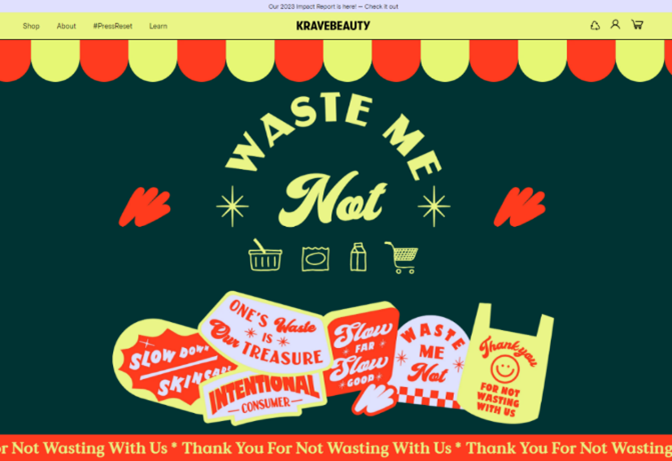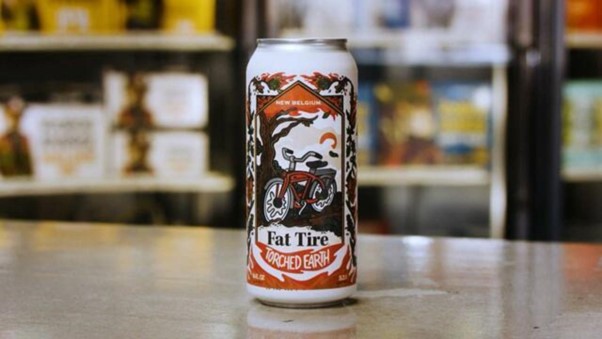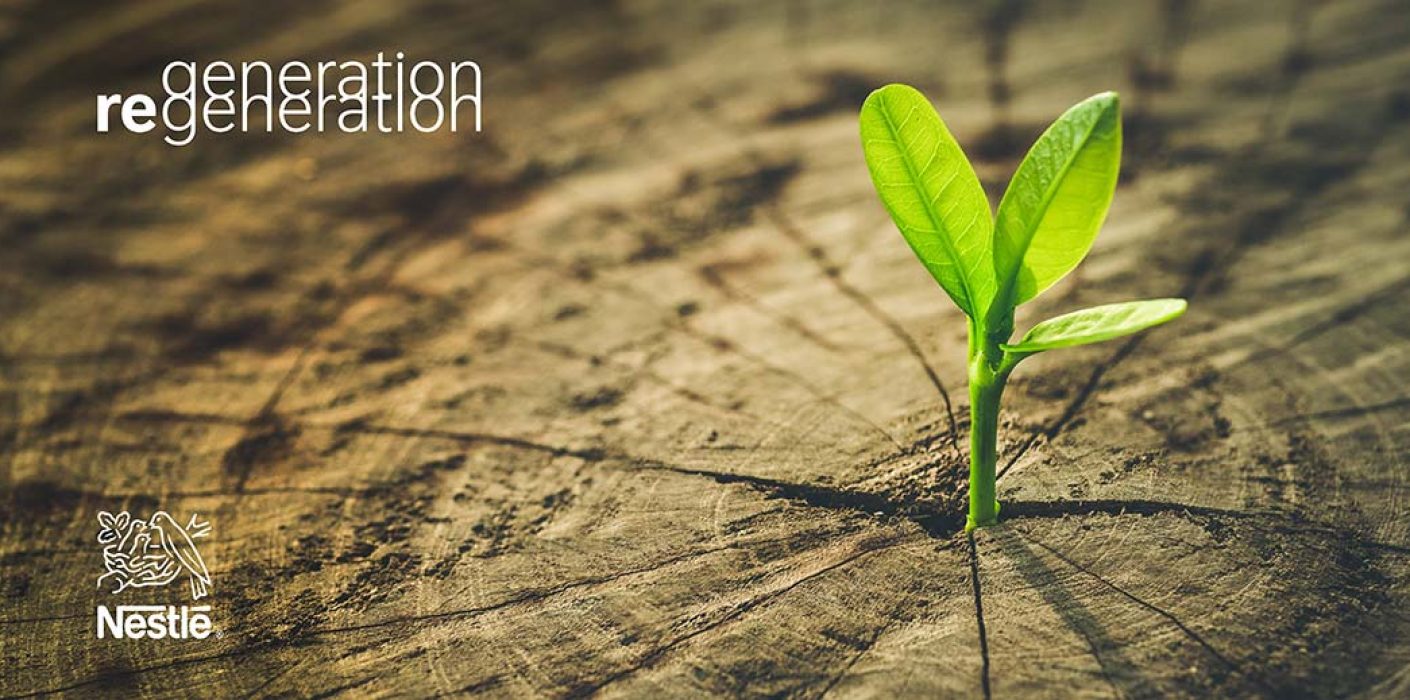Blog
Empowering brands for a regenerative tomorrow
What is regeneration and why is it important for your brand? Our CEO, Camille Nicita shares her take on the transformative power of regeneration in the corporate landscape.


Camille Nicita
22 February 2024
5 min read
Blog based on the article ‘Regeneration: A New Era of Business Strategy’ by Camille Nicita in CustomerThink.
When you search for ‘regenerative brands’ on Google, you get over 8 million results. While the concept was primarily associated with ‘regenerative farming’ in the past, regenerative thinking is now gaining momentum beyond the agricultural sector. But what is it exactly? And how is it important for brands and businesses? Camille Nicita, our CEO at Human8, shares her vision on what regeneration means for businesses.
Regeneration: what’s in a name?
Over the past few years, regenerative agriculture has become increasingly familiar to many of us. You might have heard about how Danone is developing regenerative models of agriculture or how Walmart is making regenerative-farming investments. The practices farmers use in this model, like cover cropping, no-till farming or composting, are all geared towards ensuring the long-term wellbeing of people and the planet. This type of long-term, regenerative thinking is now also entering various aspects of how we do business.
Regeneration is the mindset and associated actions aimed at restoring, preserving, and enhancing our societal communities and ecological systems. Consequently, it impacts all aspects of your business – from sourcing materials to manufacturing products, from the way you treat employees and business partners to how you use, re-use, share, repair and repurpose products. While sustainability remains a key focus for many brands, it’s no longer sufficient on its own. Sustainability initiatives focus on doing less harm, like using less energy, producing less waste, using less carbon. But doing ‘less harm’ is no longer enough, there’s an urgent need for change. In fact, 8 out of 10 people globally state they are seriously worried about the future of our planet and 78% agrees that focusing on ‘sustainability’ is no longer enough; we need to go beyond ‘sustaining’ the planet into ‘reversing the damage’ we have done. We need brands to embrace regenerative thinking and strive to ‘do more good’.
What does regeneration mean for brands?
People have high expectations of brands. In fact, 85% globally believes brands need to take responsibility to help safeguard the future of our planet. Another 84% believes brands need to be more transparent and provide information about their sustainability efforts. 1 in 2 even believe that brands that don’t communicate about their sustainability efforts are not truly sustainable. It’s clear that regenerative thinking matters to people. But how do you translate this into brand actions? In our What Matters report, we highlight eight ways in which brands can drive the transition to a regenerative future. One of those routes is labelled ‘Negative fuel’. People are increasingly aware of the damage that has been done to the environment and our social communities. While we can’t change the past, we need to own up to our actions. ‘Negative fuel’ is about taking the negative and actively using it as a source for something beneficial. An example of this idea coming to life is how beauty brand KraveBeauty addressed manufacturing waste in its ‘Waste me not’ campaign. Following a reformulation of its bestselling Cleanser product and a manufacturing mishap, KraveBeauty ended up with $1.5M worth of unusable inventory. Instead of discarding this product, the brand ingeniously reformulated it into a body wash, offering it at $8 with zero margin. The brand used this opportunity to raise awareness about the issue of hidden waste within the beauty industry, normalising talking about it. This is just one way that brands can play an important role in turning a negative into a mutually beneficial outcome.

Why is it important?
Another example of a brand that is on a journey toward regeneration in various aspects of its business, is Nestlé, with its Generation Regeneration promise. The food brand focuses on multiple pillars going from protecting, renewing and restoring the environment to building a diverse and inclusive workforce and improving the well-being of communities all over the world. Through their global coffee sustainability programmes, for instance, Nestlé trains farmers on good agricultural practices, providing the next generation of coffee farmers with the tools to build more regenerative coffee production. With many of these farmers being women, Nestlé also uses this programme to address gender biases, empowering these women to use their new skillset to improve their income.
But why is it important? Why is it crucial for brands to adopt a regenerative mindset? Beyond safeguarding the wellbeing of present and future generations, regeneration matters to consumers. As mentioned, 78% of people globally agrees that we need to go beyond ‘sustaining’ the planet into ‘reversing the damage’ we have done. And if it matters to them, it should matter to you. Adopting a regenerative mindset starts with listening to your consumers – what are their struggles and needs? – and what’s emerging in culture around them. In our global What Matters study, we saw for instance that price (45%), availability (43%) and education (41%) are vital for the adoption of a more sustainable lifestyle. 76% also believe they need to be better informed about the impact of their behaviour and actions on the future of our planet. Another 72% needs more reliable ways, such as global certifications, to evaluate whether a brand is actually sustainable. So, there is definitely a role that brands can play here. Truly listening to consumers will help you reflect on the role of your brand and its impact on people and the planet, revealing new opportunities to take meaningful action. In fact, to achieve long-term, sustainable growth, it’s a must to implement regenerative practices. New Belgium Brewery created awareness around this through its thought-provoking ‘Torched Earth’ beer designed to reflect on the consequences of climate change for the future of beer production. The deliberately unappetizing beverage – not intended to be consumed – shows how beer would look like, created from polluted water, climate-resilient dandelion root and buckwheat. Or in other words, from the ingredients that are likely to remain after climate disruptions. Through this campaign, New Belgium Brewery underscores the importance of regenerative thinking to safeguard the future of their industry and the products people love.

Other drivers for adopting a regenerative mindset are cost savings, innovation opportunities and talent acquisition. Thinking about resource efficiency, waste reduction and streamlining operations in the context of regeneration will likely lead to cost savings. But, embracing regenerative thinking also cultivates innovation and resilience by encouraging creative problem-solving and adaptability in response to changing market dynamics and environmental challenges. And finally, brands that are prioritizing regeneration also attract and retain top talent, as employees are drawn to organisations aligned with their values and dedicated to making a positive impact.
As legislations and certifications increasingly advocate for the adoption of a regenerative mindset in business, the true driving force for change should come from a realisation that our actions as individuals and as organisations are never in isolation and therefore always have the ability to impact a wider ecosystem. Consumers care about making our world a better place and seek to engage with brands that support them in that mission. It’s about doing what matters for people, your business and the world we share.
What Matters 2024
The 2024 edition of our What Matters report has arrived. The report takes a clear stance for change driven by a call for urgency, as new research reports 8 out 10 people worldwide are worried about the future and feel brands need to take responsibility.
